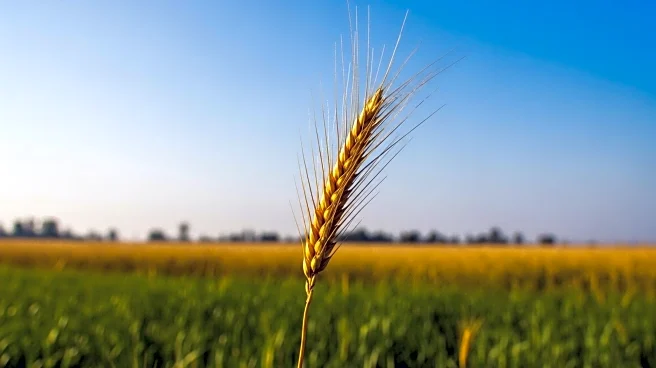What's Happening?
The International Food Policy Research Institute (IFPRI) and the Indian Council of Agricultural Research (ICAR) convened a regional policy dialogue in New Delhi, focusing on food policy priorities for South Asia. The event, titled 'Food Policy for a Changing World: Lessons and Priorities for South Asia,' aimed to address challenges such as climate change, malnutrition, and demographic transitions affecting food systems. Key figures, including Prof. S. Mahendra Dev and Dr. Vinod K. Paul, emphasized the importance of integrating traditional agricultural priorities with new challenges to ensure resilient and inclusive food systems. The dialogue highlighted the need for early interventions in nutrition and state-level innovations, such as Odisha's climate resilience initiatives.
Why It's Important?
The dialogue underscores the critical role of food systems in sustainable development, particularly in South Asia, where agriculture is a major economic driver. Addressing food policy challenges is vital for improving public health, economic growth, and environmental sustainability. The discussions aim to foster collaboration among governments, private sectors, and civil society to reshape food systems that deliver healthy and diversified diets. The event also highlights the importance of gender-responsive and climate-resilient approaches to agriculture, which can significantly impact food security and equity in the region.
What's Next?
South Asian countries are expected to implement coordinated, evidence-based policy actions to achieve Sustainable Development Goals by 2030. The dialogue sets the stage for transformative food systems that prioritize resilience, equity, and nutrition. Future initiatives may focus on enhancing regional cooperation and integrating traditional knowledge with innovative solutions to address climate vulnerability and malnutrition.
Beyond the Headlines
The dialogue highlights the intersectionality of climate vulnerability, poverty, gender, and social status, calling for inclusive solutions that address these complex challenges. The discussions also emphasize the need for a holistic view of agriculture, considering livestock, storage, processing, and the role of women farmers, which are often overlooked in traditional models.









